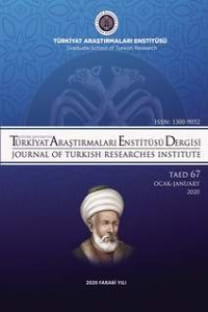Glocal Culture in the Second Language Setting on a Glocal, Cosmopolitan Campus
Glocal Culture in the Second Language Setting on a Glocal, Cosmopolitan Campus
___
- Tizon, Al. (2009). “The Glocalization of Mission as Transformation: How the Global and the Local have shaped a Movement”. Transformation,26(4), 247-257. DOI: 10.1177/0265378809342355. ISSN 0265-3788.
- Susa, Oleg. (2011). The Culture of global citizenship and global media. In Barrie Axford and Richard Huggins (Eds.), Cultures and/of Globalization (pp. 54-63). Newcastle upon Tyne: Cambridge Scholars Publishing.
- Roudometof, Victor. (2005). “Transnationalism, Cosmopolitanism and Glocalization”. Current Sociology, 53(1), 113-135. DOI: 10.1177/0011392105048291.
- Roudometof, Victor. (2014). “Nationalism, Globalization and Glocalization”. Thesis Eleven, 122(1), 18-33. DOI: 10.1177/0725513614535700.
- Robertson, Roland. (1995). “Glocalization: Time-space and Homogeneityheterogeneity”. In M. Featherstone, S. Lash, & R. Robertson (Eds.) (1995). Global modernities (pp. 25-44).
- Robertson, Roland. (2012). “Globalisation or Glocalisation?”. The Journal of International Communication, 18(2), 191-208. DOI: 10.1080/13216597.2012. 709925.
- Ritzer, George. (2003). “Rethinking Globalization: Glocalization/globalization and Something/nothing”. Sociological theory, 21(3), 193-209.
- Porta, Donetalle. (2005). “Globalizations and Democracy”. Democratization, 12(5), 668685. DOI: 10.1080/13510340500322140.
- Pantea, Marius. (2014). “Globalization and Remote Gambling”. Journal of criminal investigations, 1, 7-16.
- Palmer, John and Young Ha Cho. (2012). “South Korean Higher Education Internationalization Policies: Perceptions and Experiences”. Asia Pacific Education Review, 13, 387-401. DOI. 10.1007/s12564-012-9204-2.
- Mok, Joshua and Michael Lee. (2003). “Globalization or Glocalization? Higher Education Reforms in Singapore”. Asia Pacific Journal of Education, 23(1), 1542. DOI: 10.1080/0218879030230103.
- Melluish, Steve. (2014). “Globalization, Culture and Psychology”. International Review of Psychiatry, 26(5), 538-543.
- McGrew, Anthony. (1998). “The Globalisation Debate: Putting the Advanced Capitalist State in its Place”. Global Society, 12(3), 299-321.
- Martens, Pim, Axel Dreher and Noel Gaston. (2010). “Globalisation, the Global Village and the Civil Society”. Futures, 42, 574-582.
- Martell, Luke. (2007). ‘The Third Wave in Globalization Theory’. International Studies Review, 9(2), 173-196.
- Markee, Numa. (2000). “Some Thoughts on Globalization: A Response to Warschauer”. TESOL Quarterly, 34(3), 569-574.
- Kraidy, Marwan (1999). “The Global, the Local, and the Hybrid: A Native Ethnography of Glocalization”. Critical Studies in Mass Communication, 16(4), 456-476. DOI: 10.1080/15295039909367111.
- Kim, Hyuk-Rae and Andrew Kim. (2006). “Globalization and Socio-Cultural Change in Comparative Perspective: An Introductory Survey”. Korea Observer, 37(1), 1-22.
- Khondker, Habibul. (2013). “Globalization, Glocalization, or Global Studies: What's in a Name?”. Globalizations, 10(4), 527-531. DOI: 10.1080/14747731.2013.806747.
- Kaya, Havva. (2014). “Lifelong Learning and Adult Education Reality within the Scope of Globalization” Journal of Academic Inquiries, 9(2), 91-111.
- Joseph, V and Esther Ramani. (2012). “Glocalization”: Going Beyond the Dichotomy of Global Versus Local Through Additive Multilingualism” International Multilingual Research Journal, 6(1), 22-34. DOI: 10.1080/19313152.2012. 639246.
- Hannerz, ULF. (1990). “Cosmopolitans and Locals in World Culture”. Theory Culture Society, 7, 237-251. DOI: 10.1177/026327690007002014.
- Göktolga, Oğuzhan and Bekir Gündoğmuş. (2015). “An Effort for Preserving and Spreading of the National Culture Against Globalization: Case of Yunus Emre Turkish Cultural Centers”. International Journal of Social Science, 33, 315-328. DOI number: http://dx.doi.org/10.9761/JASSS2840.
- Giulianotti, Richard and Roland Robertson. (2007). Forms of glocalization: Globalization and the Migration Strategies of Scottish Football Fans in North America”. Sociology, 41(1), pp. 133–152. DOI: 10.1177/0038038507073044.
- Giddens, Anthony. (2000). Runaway World: How Globalization is Reshaping our Lives. New York: Routledge
- Garfolo, Blaine. and Barbara L’Huillier. (2014). “Ethics, Globalizatıon and Cultural Disintegration”. International Journal of Arts & Sciences, 7(2), 585-592.
- Findlay, Allen, David, McCollum and Helen Packwood. (2017). “Marketization, Marketing and the Production of International Student Migration”. International Migration, 55(3), 139-155. DOI: 10.1111/imig.12330.
- Fabricius, Anne, Janus Mortensen and Hartmut Haberland. (2017). “The Lure of Internationalization: Paradoxical Discourses of Transnational Student Mobility, Linguistic Diversity and Cross-cultural Exchange”. Higher Education, 73, 577595. DOI 10.1007/s10734-015-9978-3.
- Chen, Sylvia X, Vero’nica Benet-Martinez and Michael Bond. (2008). “Bicultural Identity, Bilingualism and Psychological Adjustment in Multicultural Societies: Immigration-based and Globalization-based Acculturation”. Journal of Personality, 76, 803-837.
- Butt, Graham. (2017). “Globalisation: A Brief Exploration of its Challenging, Contested and Competing Concepts”. Geography, 102-1, 10-17.
- Brooks, Jeffrey and Anthony Normore. (2010). “Educational Leadership and Globalization: Literacy for a Glocal Perspective”. Educational Policy, 24(1) 5282. DOI: 0.1177/0895904809354070.
- Boli, John. (2005). “Contemporary Developments in World Culture”. International Journal of Comparative Sociology, 46(5–6), 383-404.
- Archer, Kevin, Martin Bosman, Mark Amen and Ella Schmidt. (2007). “Locating Globalizations and Cultures”. Globalizations, 4:1, 1-14. DOI: 10.1080/14747730701245566.
- ISSN: 1300-9052
- Yayın Aralığı: 3
- Yayıncı: Atatürk Üniversitesi Türkiyat Araştırmaları Enstitüsü
Glocal Culture in the Second Language Setting on a Glocal, Cosmopolitan Campus
I. Dünya Savaşı'nda Yemen'de Osmanlı-İngiliz Mücadelesi ve Mark Sykes'ın Yemen'den Gönderdiği Rapor
IV. Murad'ın Bağdat Seferi'ne Dair Anonim Bir Eser: Feth-i Bağdâd Kıssası
İki Kutup Arasında Yaşam: 1950'li Yıllarda Türk Basınında Türk Kadını
Ayışığında "Çalışkur" Öyküsünde Anlatıcı
Masaldan Mesneviye Cariye Teveddüd Hikâyesi
Türkçenin Az Bilinen Bir Eki: +lA?
İş ve İş Bulma Sorunsalı Ekseninde Bekir Yıldız’ın Kısa Anlatıları
From the History of Actions Against Soviets in Trans Caspian Oblast (1920-1925)
Kuzey Azerbaycan'da Modern Ulusal Kimliğin Gelişim Sürecine Genel Bir Bakış
